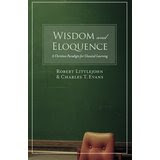In
Every Good Endeavor Timothy Keller writes of the theology of work – all work.
Vocation is not defined as a profession or position, such as ministry; a
calling may be to any job. “A job is a vocation only if someone else calls you
to do it for them rather than for yourself. And so our work can be a calling
only if it is reimagined as a mission of service to something beyond merely our
own interests” (19). The theology of work helps us to reimagine this mission,
and that is not to say we delude ourselves into thinking our work as a mission
when it is not. Keller writes, “If the God of the Bible exists, and there is a
True Reality beneath and behind this one, and this life is not the only life,
then every good endeavor, even the simplest ones, pursued in response to God’s
calling, can matter forever” (29). Knowing the theology of work may also help
one integrate his or her faith with the work they do.
Keller
writes the book in three parts, each with one major question:
Part
I. God’s Plan for Work: Why do you want to work?
Part
II. Our Problem with Work: Why is it so hard to work?
Part
III. The Gospel and Work: How can we overcome the difficulties and find
satisfaction in our work through the gospel?
His
main text throughout the book is Genesis, chapters one through three.
In
Part I Keller points out God’s design for work. God works himself, and
continues to care for his creation after creating it. An important verse is
John 5:17, in Jesus says, “My Father is at his work to this very day, and I too
am working.” It is God’s gift to Adam and Eve to care for his creation. This
was before the fall, so it was not a curse when given the responsibility.
Keller also points out that since man was created in God’s image, there is
dignity in work, a connection I have not read before. Keller writes on how God
has designed work for cultivation (which only man is created to do) and for
service.
Part
II deals with work after the fall, when it becomes labor, and that labor is
fruitless. Keller illustrates how work may become pointless by citing
Ecclesiastes. He writes of the story of Babel to illustrate how work may become
selfish, as the builders of the tower sought what “we all want so desperately –
glory and relationship,” but apart from God. Selfishness leads into the chapter
that I think is the anchor of Part II – “Work Reveals Our Idols.” Keller cites
Martin Luther for defining idolatry as “looking to some created thing to give
you what only God can give you.” We have to ask ourselves what we work for. In
this chapter he also points out group and societal icons as well as individual
ones, such as the market, technology, the present reality – ideas that we may
allow to take the place of God.
Part
III is The Gospel and Work. It includes a new narrative or worldview through
the gospels. The Christian worldview differs from social or political movements
in seeing the problem as the fall, rather than some aspect of man’s or
society’s nature. The Bible does not focus on one part of creation as the
source of evil or its solution. Here Keller applies the Christian worldview to
some specific occupations, including business, education, and journalism.
Important to this part of the book is chapter ten, in which Keller writes about
how God’s providence is seen through the work of all. He cites Martin Luther on
this subject. God provides through the work of others, so even the non-believer
may share in ‘common grace’. This is one of the ways of general revelation of
God.
This
is the first book I’ve read by the popular author. I will read more by him.
Timothy Keller writes on substantial topics in the language of a teacher, but
not so technical as to be academic. His references show depth and breadth of
reading, not only in spiritual classics. In this book I found points, backed by
biblical address, that I have not read before on the topic of work. It is a good expression of the theology of
work.






